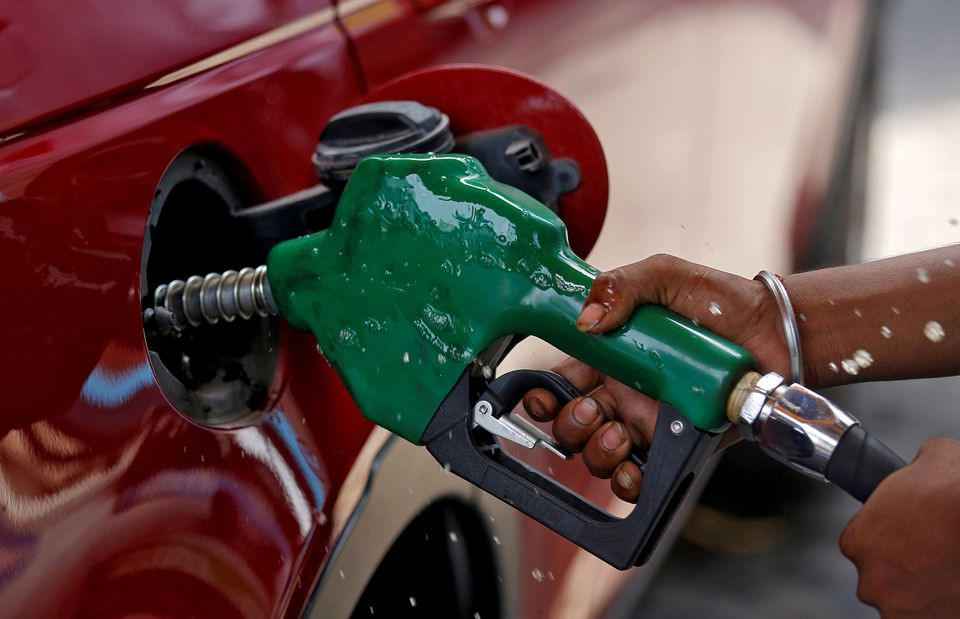
The petroleum industry in Pakistan has the potential to grow substantially but the long-standing issues of excessive regulation and government-controlled fuel prices have held this industry back, which I explored in my previous column.
Prices of fuels like petrol and diesel must be fully deregulated. Instead of determining prices, the government should concentrate on collecting taxes from fuel sales to meet its revenue targets.
In a market where prices are determined by supply and demand, there won’t be any perplexing and unexplained deviations in price formulation that may eventually hurt the consumers, as we’ve seen recently.
In its latest price revision, the Oil and Gas Regulatory Authority (Ogra) unexpectedly increased the petrol price, and the delayed impact of exchange rate might be one of the key factors.
When setting prices of petrol, diesel (HSD and LDO), and kerosene for the first fortnight of August (August 1-15), it would have been normal for Ogra to incorporate the effect of average exchange rate in the second fortnight of July (July 16-31).
Instead, for some unexplained reason, it appears that Ogra included the average of all the required days, except the last two working days when the exchange rate was rather high.
Those two days, however, didn’t just disappear in thin air. When setting prices for the second fortnight of August (August 16-31), the government may have lumped those two days of July together with the first fortnight of August to get the average exchange rate.
Those additional two days may have played a role in pushing prices higher, thereby dashing consumer expectations.
Time and again, we have seen how government’s interference in the mechanisms of fuel market ends up creating more problems than solutions. Sometimes, it can backfire spectacularly, as we’ve seen with the price differential claims (PDC).
PDC, which was added by the PTI government in the pricing formula in its final days and initially continued by the PML-N government, was essentially a subsidy meant to artificially keep fuel prices low. But a blanket subsidy of hundreds of billions of rupees wasn’t something Pakistan could afford. Not surprisingly, it ended up hurting the nation’s financial health.
In this context, the authorities would be well advised to step back and let the “invisible hand” of the market do its work. In a free-market situation, oil companies should compete fiercely with each other, guided by their self-interest of maximising profits.
But in doing so, to quote Adam Smith, often called the ‘Father of Economics’, the oil companies will promote the “interest[s]” of “society more effectually” than they intended to.
Opponents of deregulation, however, fear that this could push fuel prices higher, particularly in remote regions or rural areas that have a few petrol pumps. Although this concern is justified, the adverse effects of deregulation will likely be transitory and short-term in nature.
Suppose there is just one petrol pump in a hypothetical village. In a deregulated market, the owner of that pump, seeing no threat from a competitor, could start charging an exorbitant price for fuel. But they can’t do this for long.
Over the long term, in a free-market system in which the government encourages competition, a new petrol pump will prop up to take advantage of high profit margins. This increase in competition will bring prices down while the regulator will make sure no collusion occurs between the rival pumps.
Rather than just the remote villages, a nationwide rise in competition will likely be seen in the petroleum sector. The deregulation of fuel prices will lure investors to this industry and we might witness a rise in the number of petrol pumps and increase in oil refining capacity to feed these new retail locations.
As a consequence, in the above-mentioned example, even if no one establishes a new petrol pump in the remote village, additional retail outlets will still open on the highways and cities located nearby, thus giving more options to the villagers.
Gains won’t be limited to the petroleum products’ retail and oil refining industries. Petroleum infrastructure and transportation (midstream) industry will also benefit.
In a deregulated market, the inland freight equalisation margin (IFEM), which is a component of fuel prices and is used to keep POL prices uniform throughout the country, will also get scrapped.
Removal of IFEM will create differences in prices, with cities like Karachi which have ports and oil refineries benefiting from lower prices as compared to those that have neither.
However, this difference in prices between cities will pull investment in the midstream industry. The deregulated market will make it feasible to deploy new storage tanks and pipelines for fuel transportation to key demand centres, bringing an end to the era of oil trucks (bowsers) that are not only inefficient but also pose a serious safety risk.
This flow of investment in the petroleum sector will undoubtedly have a positive impact on the economy. But this can happen only if the government deregulates fuel prices, encourages competition, empowers the regulator to protect consumer rights, and lets the invisible hand of the market push the petroleum sector forward.
The writer focuses on subjects of business and economics, specialising in the energy sector
Published in The Express Tribune, August 29th, 2022.
Like Business on Facebook, follow @TribuneBiz on Twitter to stay informed and join in the conversation.

1730977086-0/diddy-(38)1730977086-0-405x300.webp)
1717587923-0/jake-paul-vs-mike-tyson-(1)1717587923-0-165x106.webp)





1730963708-0/Express-Tribune-Web-(27)1730963708-0-270x192.webp)









COMMENTS (4)
Comments are moderated and generally will be posted if they are on-topic and not abusive.
For more information, please see our Comments FAQ